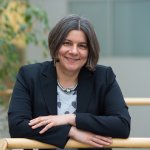
Reducing language barriers in mental healthcare for refugees and other migrants: how digital technologies can become part of the solution
Reducing language barriers in mental healthcare for refugees and other migrants: how digital technologies can become part of the solution.
Mental health problems affect millions of people worldwide. Refugees and other migrants are particularly at risk of developing mental health problems due to stressors they encounter before, during, and after their migration process. Access to mental healthcare services and treatment for mental health problems is often associated with difficulties, particularly for refugees and those migrants who do not speak the dominant language of their host country. Furthermore, treatment often lacks cultural and linguistic sensitivity, resulting in inadequate care and premature treatment cessation.
Mental Health for All
The EU project Mental Health for All brings together 13 partners from 9 European countries (coordinator: University of Amsterdam; AMIF, 2022-24) to develop, test, and implement a multilingual, culturally-sensitive digital information and communication platform in mental healthcare to reduce the negative impact of linguistic and cultural barriers in accessing mental healthcare services for refugees and migrants. The contents of this platform, including a resource repository, multilingual audio-visual patient narratives and healthcare provider education, will be based on evidence regarding the availability of high-quality language resources, stakeholders’ needs, and barriers, and proven effective intercultural communication strategies. Refugees and migrants, their caregivers, interpreters, intercultural mediators, mental healthcare professionals and organisations are the main stakeholders to benefit from this new platform.
This panel was the first Open Space meeting of this three-year project, introducing the project and presenting initial findings. In response to ongoing public debates about available resources for overcoming language barriers in healthcare settings, one specific point of exploration was the role of language technologies and other digital technologies in reducing language barriers in healthcare settings. The panel examined potential benefits and raised awareness for current challenges and limitations.
Panellists

Raquel Lázaro Gutiérrez
University of Alcalá
Biography
Raquel Lázaro Gutiérrez is an Associate Professor in the Department of Modern Philology at the University of Alcalá (Madrid, Spain). She has been a member of the FITISPos-UAH Research Group since 2001 and Vice-President of the European Network for Public Service Interpreting and Translation (ENPSIT). She has participated in European research projects such as SOS-VICS (2011-2014), AHEH-Knowledge Alliances (2018-2021), or MHEALTH4ALL (2022-2025).

Lucas Nunes Vieira
University of Bristol
Biography
Lucas Nunes Vieira is a Senior Lecturer in Translation Studies at the University of Bristol. He researches the use of machine translation in human translation processes and in communication. He has a PhD on post-editing of machine translation and is currently Principal Investigator of the AHRC-funded project “Critical language barriers: Understanding the role of online translation tools in high-stakes professional sectors” (2022-2025).

Barbara Schouten
Panellist
Biography
Barbara Schouten is an associate professor at the University of Amsterdam, department of Communication Science and PI at the Center for Urban Mental Health. Her research focuses on causes, processes and outcomes of healthcare communication with patients belonging to minority groups. She is currently PI of two international research projects, Right2Health and Mentalhealth4all, and co-PI on several national and international research projects. Her projects focus on mitigating culture-related and language-related barriers between healthcare providers and migrant patients by means of digital communication tools, such as decision aids and audiovisual narrative communication. She is associate editor of the European Journal of Health Communication and chair of the Special Interest Group on Language and Cultural Discordance in Healthcare Communication of the European Association of Communication in Healthcare.
Convenors

Sabine Braun
University of Surrey

Graham Hieke
University of Surrey